iDEA Awards, Grove Academy
Gavin Pyott, PT Computing Science
I became aware of the iDEA awards by chance when it was first launched 3 years ago. I can’t explain how glad I am that I did. The programme is so well written and produced that all learners are drawn into the modules and are keen to do more. Due to the positive impact iDEA had with classes in my department l began promoting the awards and encouraging others to use it within their schools. As a result of this l was awarded the title of Teacher Ambassador from iDEA.
 The Inspiring Digital Enterprise Award, known as iDEA, is an international programme that helps students develop and demonstrate digital, enterprise and employability skills.
The Inspiring Digital Enterprise Award, known as iDEA, is an international programme that helps students develop and demonstrate digital, enterprise and employability skills.
Since its launch, iDEA has established itself as the digital equivalent of The Duke of Edinburgh Award. The iDEA awards are recognised by universities and employers so are a great addition to any student’s CV.
The iDEA awards allow students to map their knowledge and understanding of the digital world through a series of modules (badges).
The badges have been designed to unlock new opportunities and raise awareness of the diverse range of careers in our digital world, all the while allowing students to gain an industry recognised award to help them stand out from the crowd.
To achieve a Bronze Award, students need to earn a minimum of 250 points, including at least 40 points in each of the core categories of the curriculum: Citizen, Worker, Maker and Entrepreneur.
• CITIZEN BADGES cover digital awareness, safety and ethics.
• WORKER BADGES introduce tools and techniques which are useful in the digital workplace.
• MAKER BADGES cover digital creativity and building and making in the digital world.
• ENTREPRENEUR BADGES explain how to originate ideas and bring them to life.
• GAMER BADGES investigate gamification techniques and help people learn how to make games.
These badges are all very informative and explain complex concepts in a straightforward, easy to understand, way. All badges are designed to be interactive, allowing pupils to answer questions as they go, building up their knowledge step-by-step.
To help track student progress iDEA have launched ‘organiser codes’ and the organiser area. This allows you to provide pupils with a simple code to add to their iDEA profiles. This will then pull the progress charts for each pupil together into a handy, easy to use spreadsheet.
After completing the Bronze award, many pupils volunteer to move on to the Silver. Unlike Bronze, the Silver award has been written as a series of topics. Each topic is story-based with students being guided through a real-life scenario as they discover the skills required to progress.
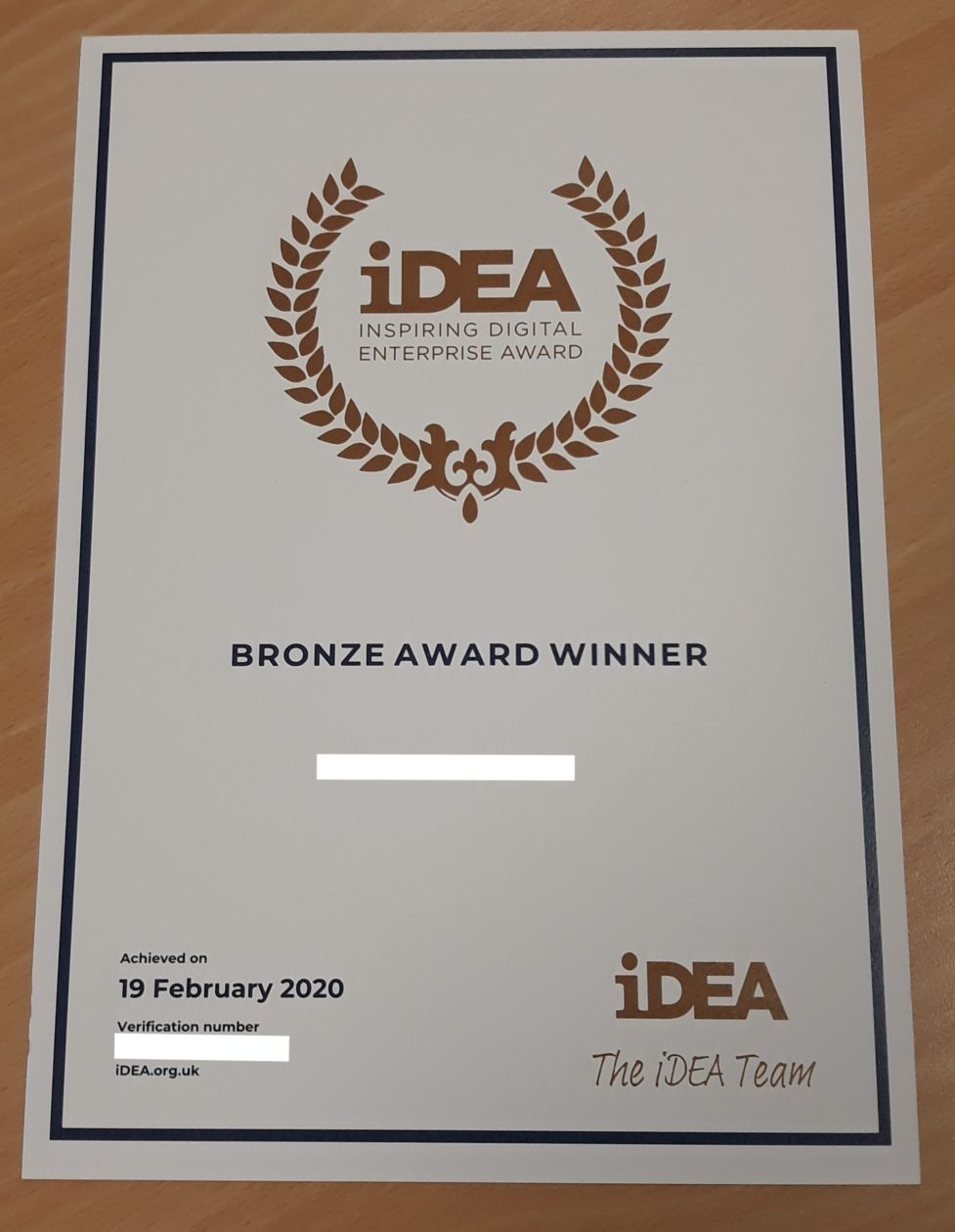
Due to the amazing quality and excellent writing in the badges in the programme the target audience range has really been opened up. I have successfully delivered the iDEA award in S1, S2 and S3. We now have pupils is S4-6 who are also tapping into the programme as it has caught their attention. iDEA also works great in an upper primary setting. My own daughter liked the look of the badges and had a go herself. She successfully completed the Bronze award in Primary 6 and completed her Silver when in Primary 7. Not wanting to stop there she completed a total of 50 Bronze badges to become ‘Badge Champion’ and completed the remaining Silver topic to become a
‘Silver Star’. This determination to complete the modules has been replicated by students in my classes who applied the Pokemon ‘got to get them all’ approach to the badges and awards. I have to admit, I have done this too! The iDEA badges are so interesting and informative I found I couldn’t stop either! As an introduction to a new concept (block chain) or to brush up existing skills the iDEA Award is great CLPL for staff too.
Mr Pyott has created a Sway which will give you a full introduction to the work and process involved in using iDEA and his top tips. To view click here.
To see more from Mr Pyott you can visit his Twitter feed on @MrPyott
To see more from Grove Academy, please visit their Twitter feed on @Grove_Academy
You can find out more on iDEA Awards via https://idea.org.uk/ 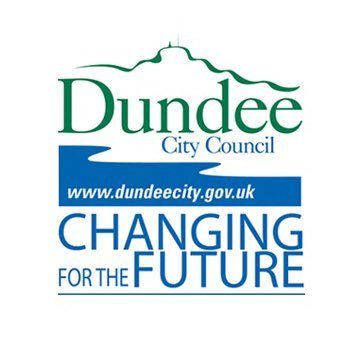
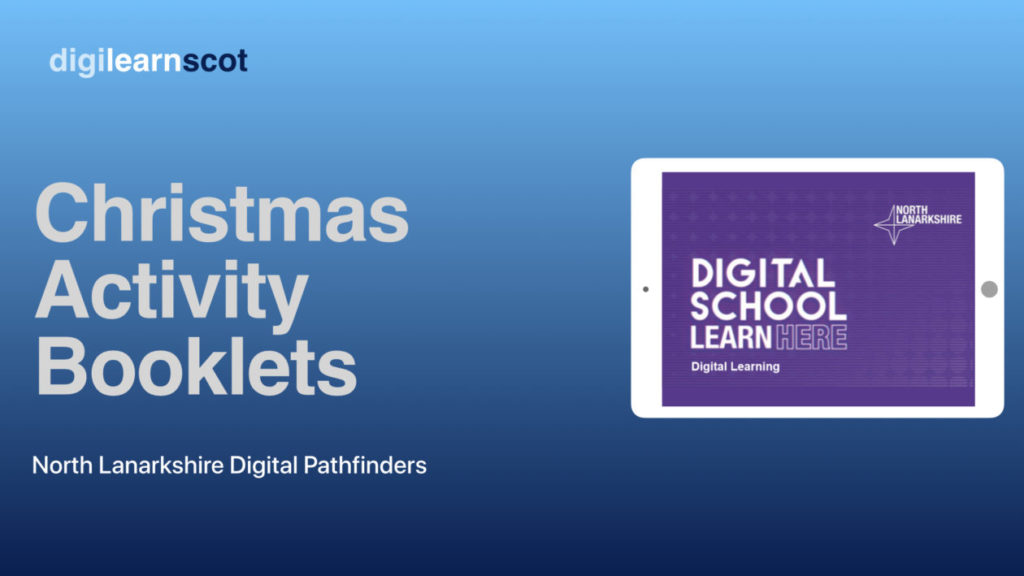



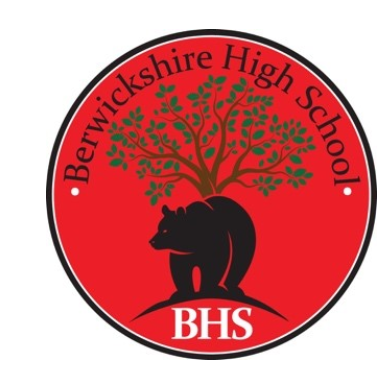



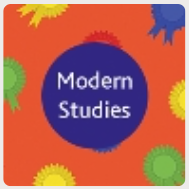
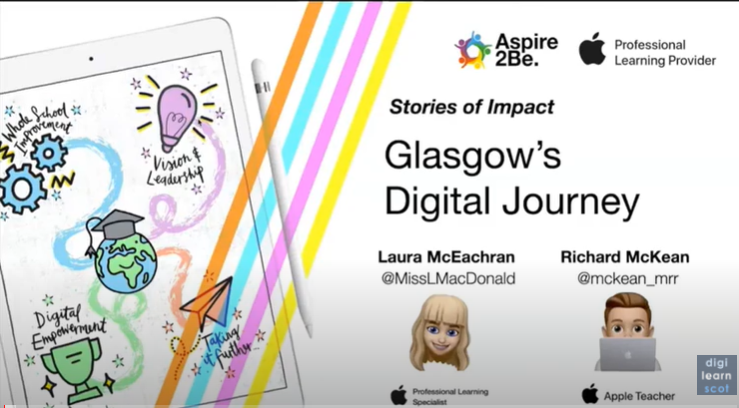
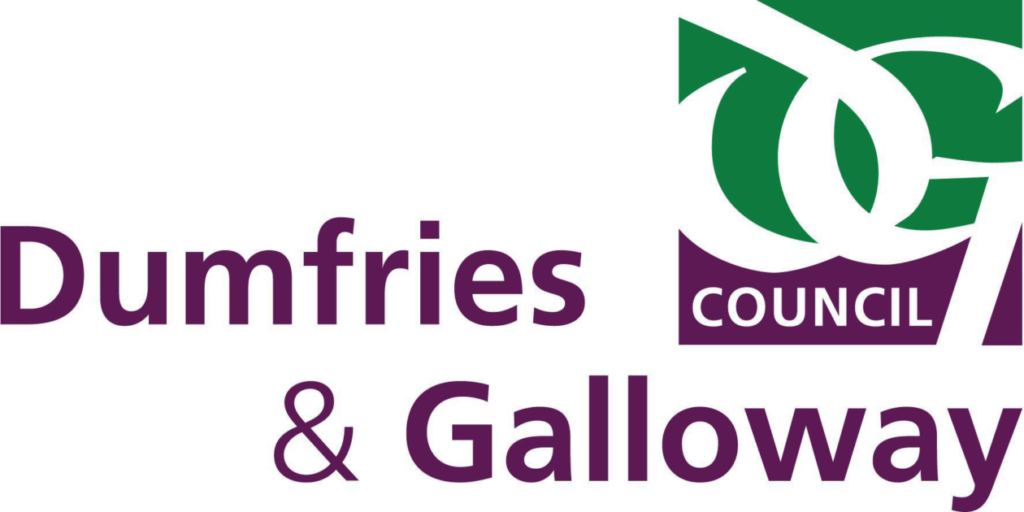
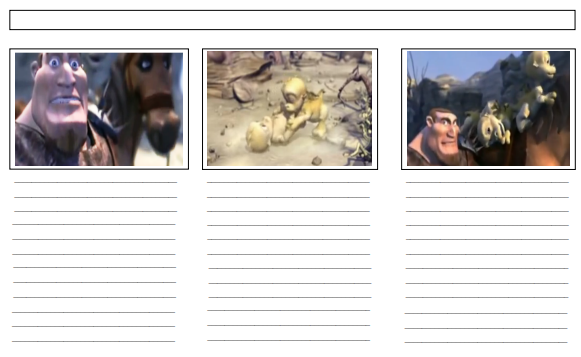

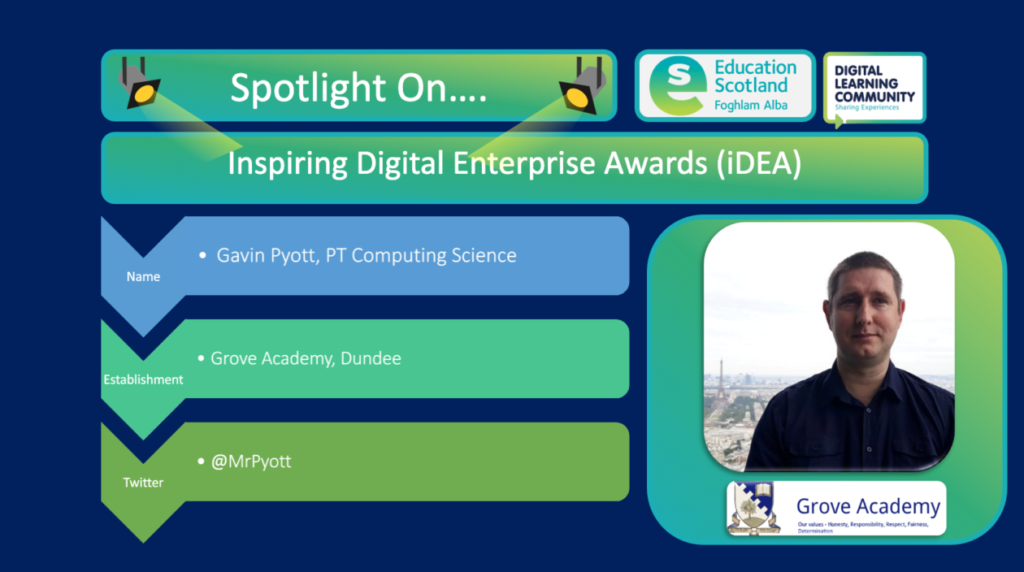

 The Inspiring Digital Enterprise Award, known as iDEA, is an international programme that helps students develop and demonstrate digital, enterprise and employability skills.
The Inspiring Digital Enterprise Award, known as iDEA, is an international programme that helps students develop and demonstrate digital, enterprise and employability skills.

